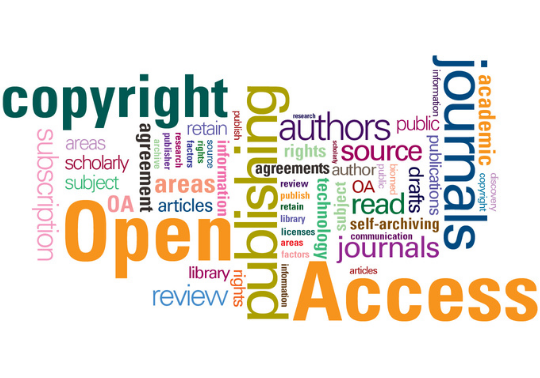
The publication in OPEN ACCESS of the scientific production of a university has numerous benefits, especially in the current economic context.
Gold Open Access (Gold OA) aims to promote barrier-free access to scientific research results.
At the moment, we can find different publication options, some of which charge authors for publishing and others do not, namely:
- Free magazines, where publication and access are totally free (DOAJ, E-journals...). Generally, this includes publications from public institutions and scientific societies (known as VIA DIAMANTE)
- Journals that allow free access to articles after some time after their publication.
- Journals in which all articles are free upon payment of the author or the institution that finances it. They are very frequent in Health Sciences (BIOMED CENTRAL)
- Hybrid journals in which articles accessible by subscription and others in open access coexist because the author or his institution, normally charged to research projects, have paid the APCs (Article Processing Charges), amount for article processing.
Before choosing a journal to submit an article for publication, it is convenient to know what its open access editorial policy is. Thus, on the one hand, we can go to the journal's own website ("Rights & Permission", "Copyright" or "Self-archive policies") or, on the other, consult the Sherpa/Romeo databases, in the case of magazines international, or spanish database Dulcinea.
Sometimes, it is necessary to be extremely careful with the editorial frauds that arise with the so-called Predator journals.
In the following link we can take a look at the existing open access journal directories.
On the other hand, and to support open publication, the University of Valencia has signed agreements with some publishers so that authors from the university community benefit from discounts on APC taxes.
Today, and paraphrasing this week's Open Access theme, actions are being taken to ensure global equality in access to research results.
In this way, an attempt is made to reverse the advantageous business model of scientific journals and give a definitive boost to Open Access through the imposition of open publication of research results by governments or the EU Plan S.
In addition, among other scientific journal agreements such as “read & publish”, the viability of the controversial “TRANSFORMING AGREEMENTS” is studied, negotiated between commercial scientific publishers and libraries or library consortia, as proposed in the principles of S Plan, and that they seek to expand the model of open access or gold (gold open access) to the maximum number of publications of a publisher. In this way, the money traditionally spent on subscriptions would be used to pay the costs of publishing openly and the transition to open access would be facilitated.
If you want to know more about the subject, visit our Research Support blog: https://investsbd.blogs.uv.es/accesobert/publicar-en-obert/dades-en-obert/

.jpg)









